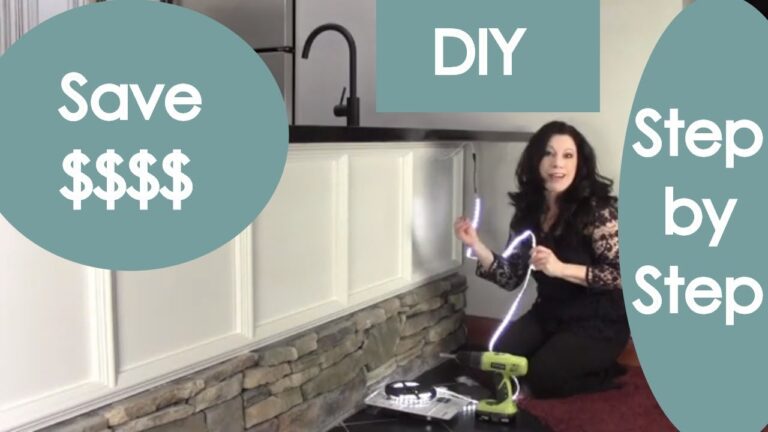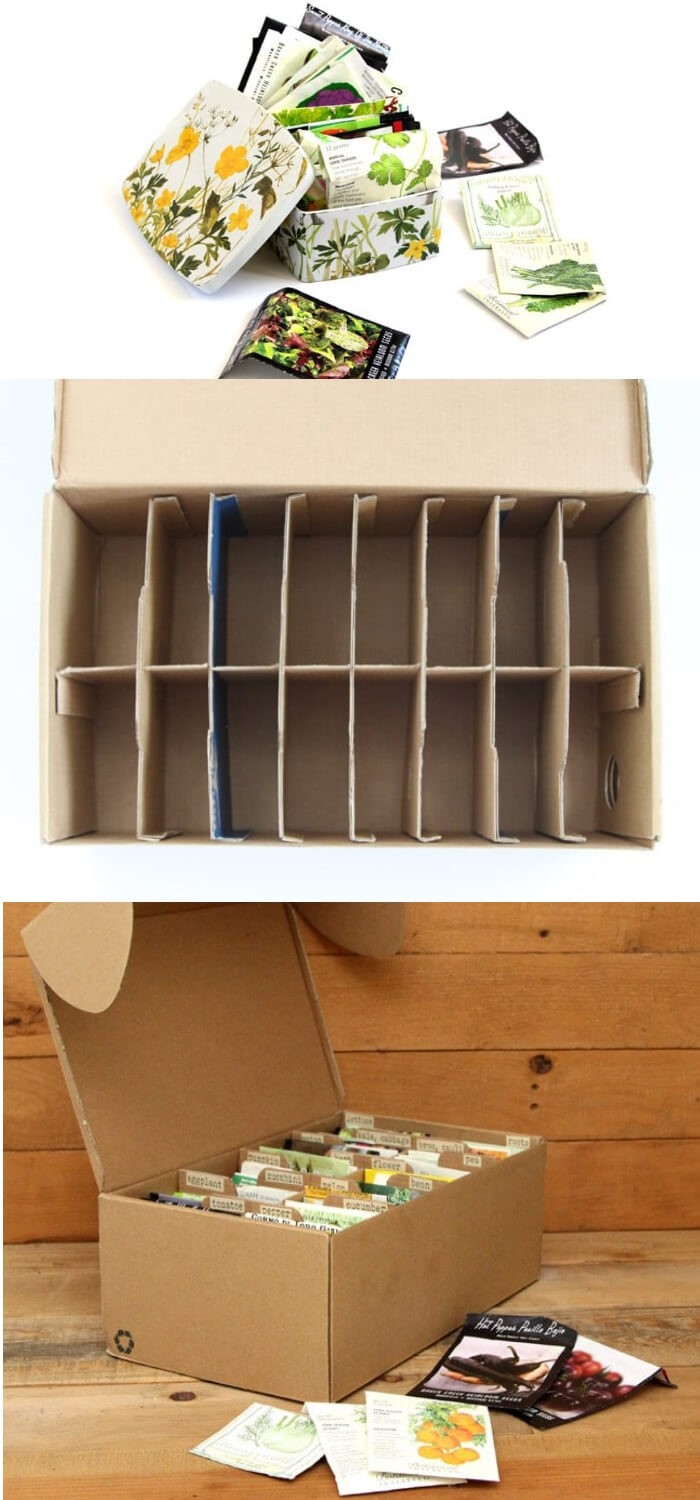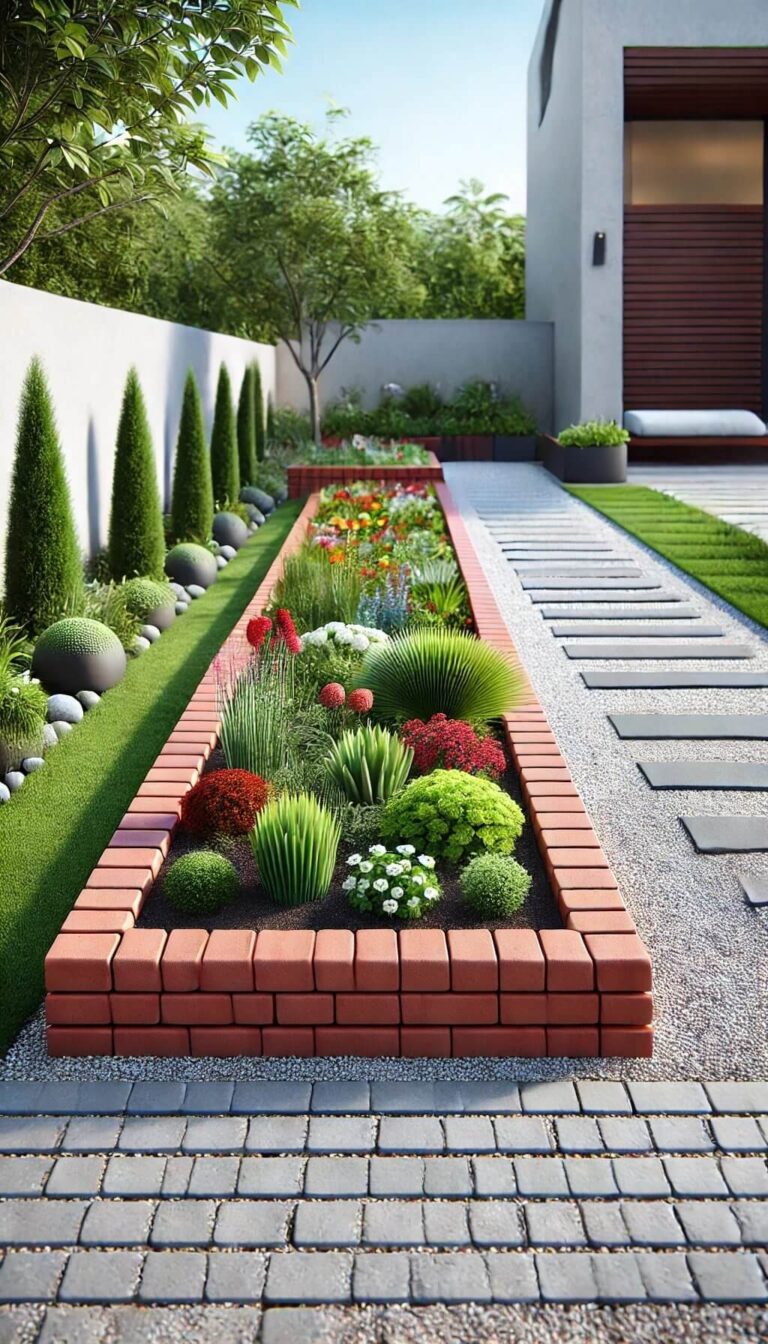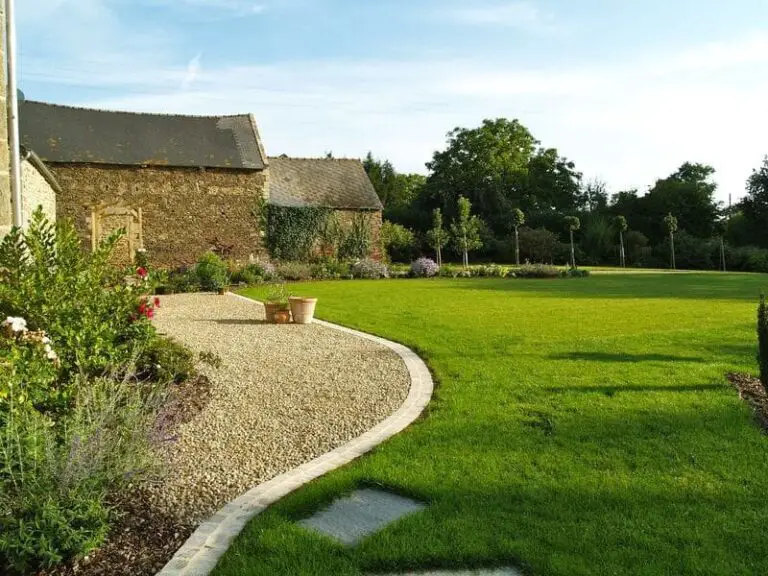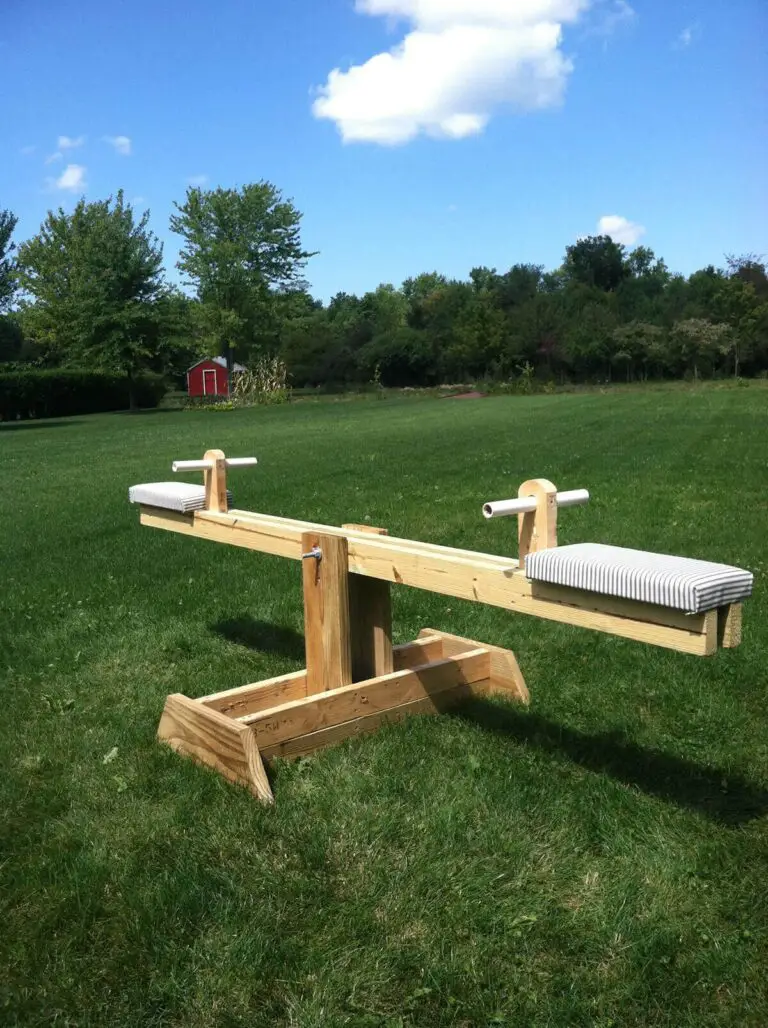23 Types Of Pavers: The Best Options For Driveway, Patio, Walkway
When it comes to enhancing your outdoor space, installing a paver driveway, patio, or walkway is an excellent consideration. Pavers offer a wide range of benefits, including customizable shapes, sizes, and colors, as well as the ability to create unique patterns. In this article, we’ll delve into the different types of pavers available, helping you determine which option best suits your home.
From natural materials like bluestone and travertine to manufactured options such as concrete and plastic, there’s a diverse array of paver choices. We’ll explore each type, including aircrete, asphalt, brick, clay, cobblestone, ferrock and ashcrete, flagstone, gravel, grasscrete, hempcrete, interlocking concrete, marble, mulch, mycelium, porcelain, resin, rubber, sand, timber, and more. Pavers not only offer aesthetic appeal but also possess practical features like interlocking capabilities.
Whether you’re looking to add curb appeal or create a functional outdoor space, pavers can be tailored to meet your specific needs. In addition to the various types of pavers, we’ll address common questions such as what are the cheapest options, do patio pavers cost less than concrete, and whether pavers increase home value. With this comprehensive guide, you’ll be well-equipped to make an informed decision when it comes to choosing the perfect paver for your outdoor space.
What are pavers?
Pavers are a popular choice for creating flat outdoor surfaces, such as driveways, sidewalks, and patios. These versatile paving stones, often made from concrete or brick, offer a range of benefits. Not only do they come in diverse shapes, sizes, and colors, but they can also be tailored to suit individual tastes and architectural styles. Whether you’re a seasoned DIY enthusiast or prefer to hire a professional contractor, pavers provide an accessible solution for enhancing your home’s exterior.
What are pavers used for?
Pavers are a versatile and popular choice for various outdoor projects. They’re commonly used for creating functional spaces like driveways, sidewalks, patios, and walkways. Additionally, pavers can be utilized to craft stunning landscaping features such as gardens, meandering paths, borders, and more. With their diverse range of shapes, sizes, colors, and materials, pavers can be easily adapted to suit any project or design aesthetic.
Types of Pavers for Your Outdoor Space.
The vast array of paver options available in the market is truly impressive. Not only do they come in diverse shapes and sizes, but also in a wide range of colors and textures that can add unique character to any outdoor space. Among the many types of pavers out there, some stand out as particularly popular for their versatility and aesthetic appeal.
Aircrete Pavers.
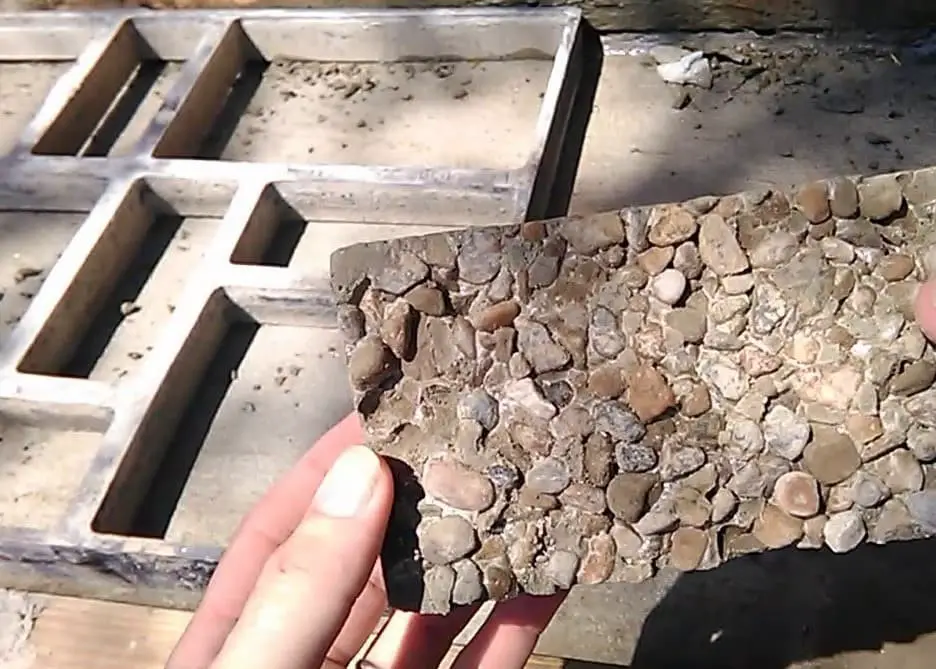
Aircrete pavers have revolutionized the way we think about outdoor spaces, offering a unique combination of beauty, durability, and low maintenance. Made from a proprietary lightweight concrete mixture, these pavers come in a wide range of colors and styles to suit any architectural design. One of their most significant advantages is the ease of installation, which makes them an attractive option for homeowners who value simplicity and speed.
However, it’s essential to consider your local climate when selecting aircrete pavers. While they’re suitable for many regions, areas that experience freezing temperatures might not be compatible with this material. Furthermore, aircrete pavers do require occasional sealing to protect them from staining and maintain their appearance. In terms of the pros and cons, aircrete pavers boast impressive strength and durability, making them a long-term investment for any outdoor space.
Their ease of installation also makes them a popular choice among homeowners. On the downside, they can be more expensive than other options, so it’s crucial to research and compare prices before making a decision. Additionally, their smooth surface can be slippery, particularly in areas where moisture is present. As such, adding a non-slip coating or texture might be necessary to ensure safety.
Asphalt Pavers.
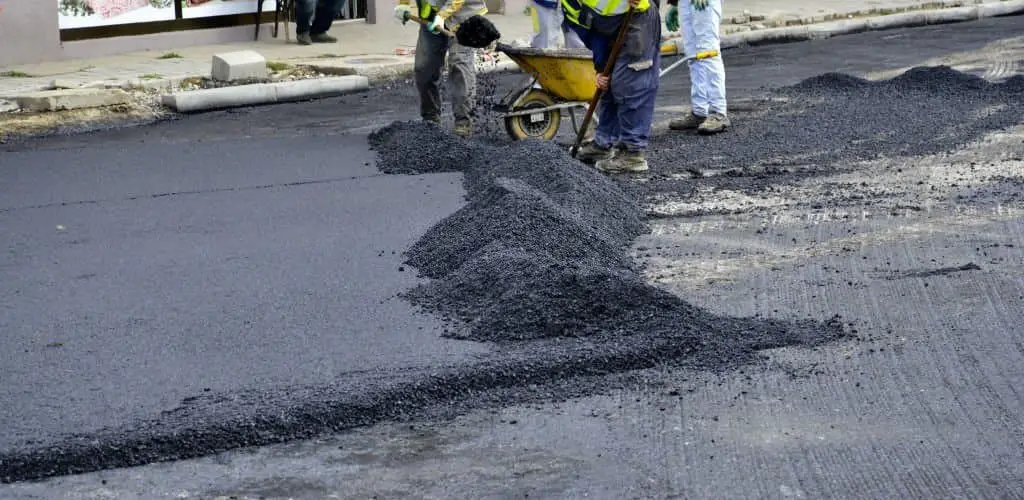
Asphalt is a ubiquitous material in road and driveway construction, with its use facilitated by specialized machines known as asphalt pavers. While there are various types and sizes of these machines, their fundamental operating principle remains the same. The process of using an asphalt paver begins with loading it with asphalt, which is typically fed from a dump truck or similar vehicle.
The asphalt is then spread across the surface to be paved, with the width adjustable through settings on the machine. Once the desired amount has been laid down, a roller is employed to compact the asphalt, ensuring a smooth and even finish. After compaction, the asphalt requires time to cure before it can be used. When evaluating the suitability of an asphalt paver for a project, several factors come into play.
On the plus side, these machines are capable of paving with remarkable accuracy, resulting in fewer mistakes and a smoother overall finish. Moreover, they are versatile enough to handle projects of all sizes, from small to large-scale applications. However, there are also some drawbacks to consider. Asphalt pavers can be quite costly to acquire or rent, and they require regular maintenance to ensure optimal performance.
Bluestone Pavers.
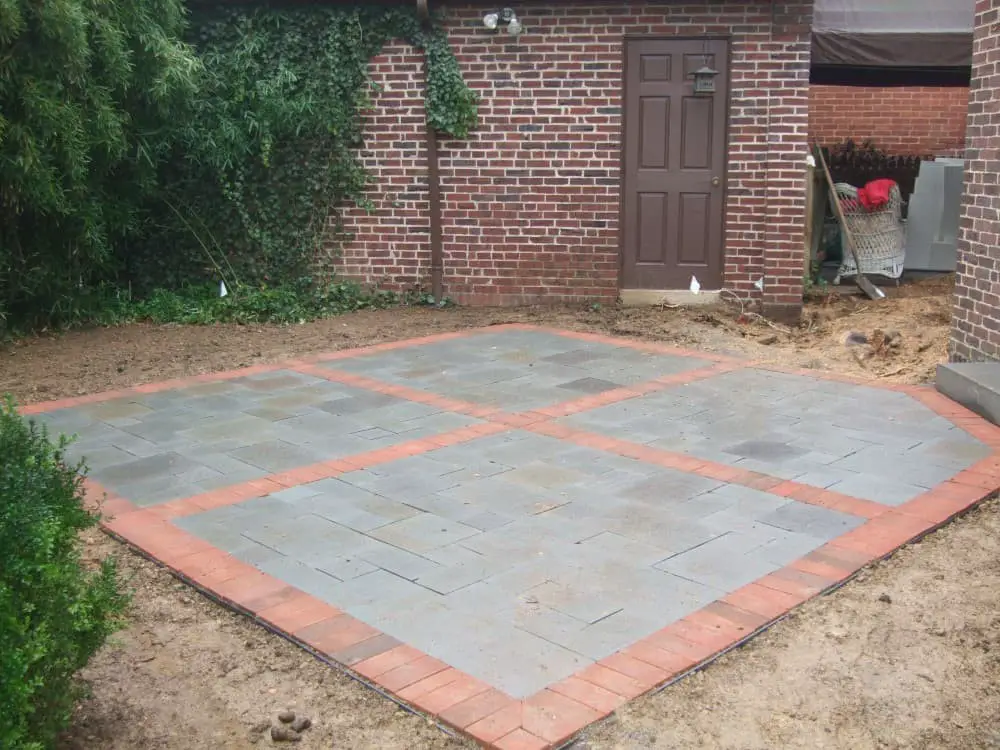
Bluestone pavers are a natural stone option that boasts an impressive color palette, spanning from light blue to deep blue hues. While the lighter shades of bluestone are particularly popular, their slightly blue-gray tint sets them apart. This versatile material is often chosen for outdoor paving projects due to its durability and ability to seamlessly integrate with various landscaping styles. However, like any material, it’s not without its drawbacks.
Two key considerations when selecting bluestone pavers are the potential slip hazard when wet and the requirement for regular maintenance to prevent staining and moss growth. To mitigate the former concern, opting for textured surface bluestone pavers can provide a safer walking experience. Meanwhile, regular cleaning is essential to maintain the material’s natural beauty.
Brick Pavers.
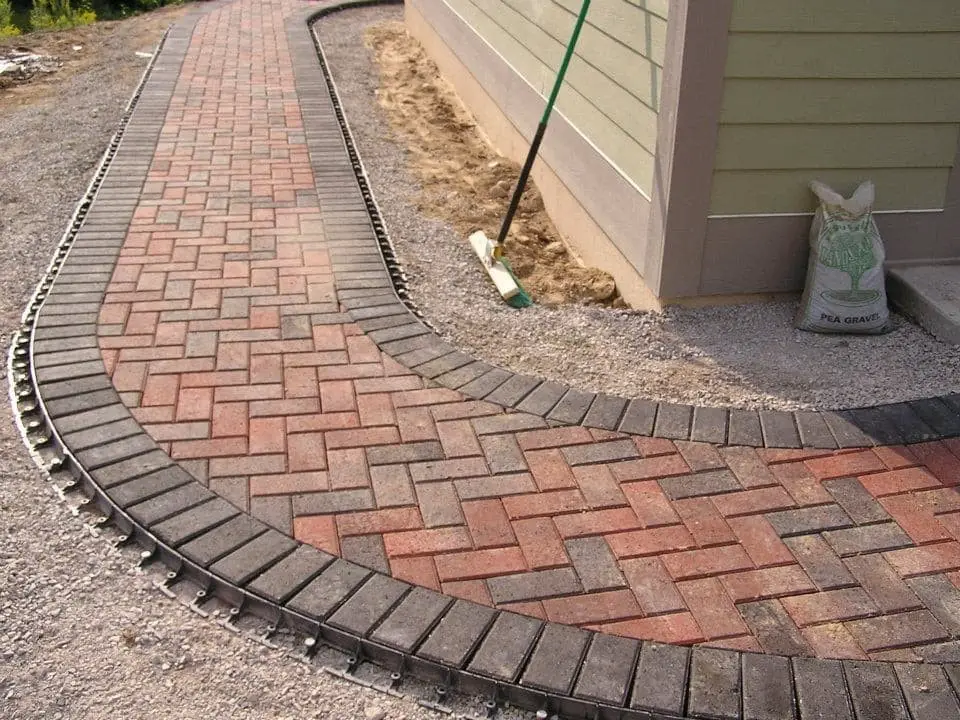
Brick pavers are a popular choice for homeowners looking to create a beautiful walkway, patio, or driveway. These small blocks come in a variety of colors, shapes, and sizes, made from concrete, stone, or clay. Their durability and ease of maintenance make them an attractive option. There are two types of brick pavers: solid and hollow. Solid pavers are made from one piece of material, while hollow pavers have a space between two pieces.
Installation typically begins with excavation, followed by the installation of a base material and compaction. The pavers themselves are then laid in place, with joints filled with sand and sealed. Once installed, brick pavers require minimal maintenance, though regular sweeping is necessary to remove dirt and debris. Power washing can also be used for deeper cleaning. If stains occur, a paver cleaner or sealer can restore the pavers’ appearance.
The pros and cons of using brick pavers include:Brick pavers are an attractive option due to their durability and ease of installation. They come in various colors and styles, allowing homeowners to match their exterior design. However, they can be expensive and require more maintenance than other paving materials. Regular cleaning and sealing are necessary to prevent staining and fading.
Clay Pavers.
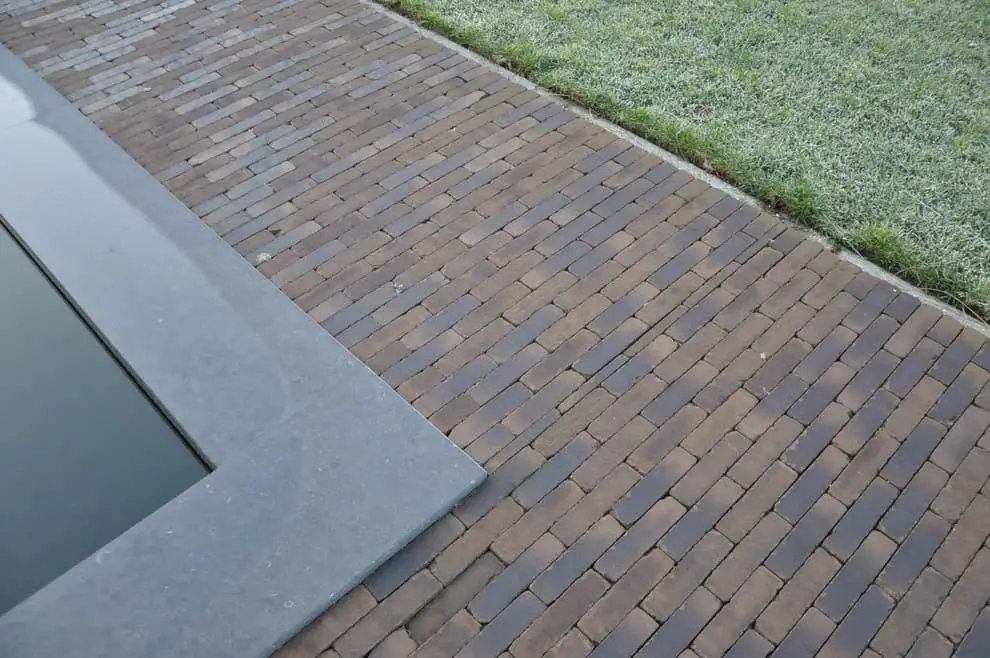
Clay pavers, crafted from natural clay and fired in a kiln, possess an unparalleled strength and durability that makes them a top pick for high-traffic areas. With proper care, they can withstand the test of time, remaining a reliable choice for decades to come. Their versatility is further enhanced by their wide range of colors, shapes, and sizes, allowing homeowners to create unique patterns and designs. Moreover, clay pavers can be engraved with words or images, offering a personalized touch.
As a result, it’s no surprise that they remain a popular choice for patios, walkways, driveways, and other outdoor areas.
Cobblestone Pavers.
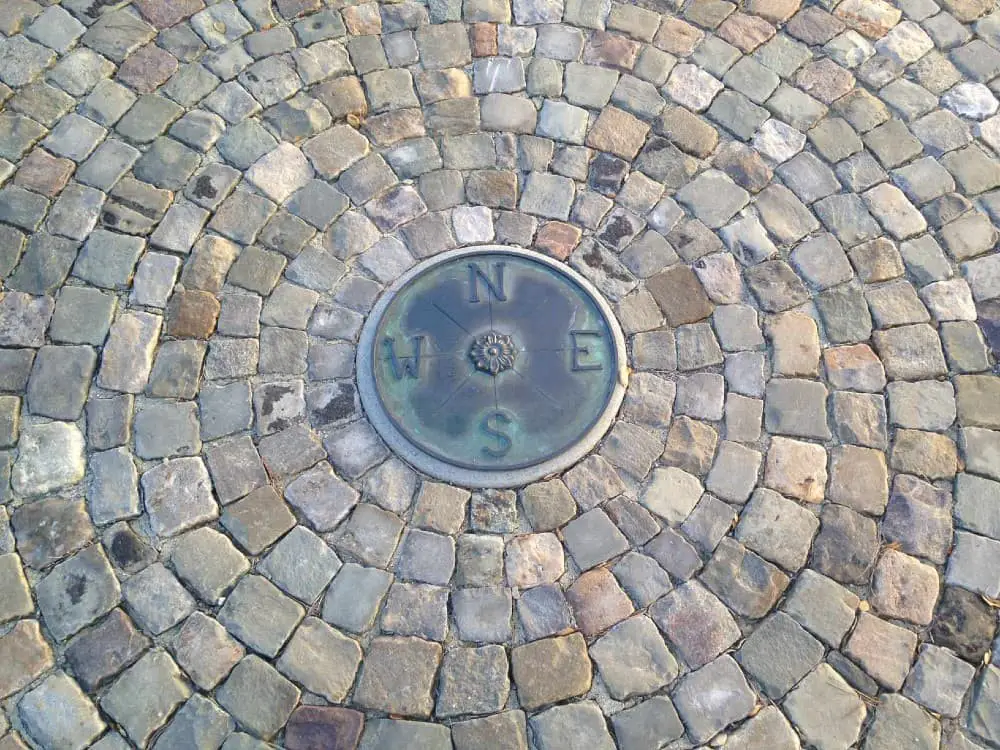
Cobblestone paver is a prized natural stone renowned for its enduring durability and timeless allure. Perfect for outdoor spaces such as patios, driveways, or paths, cobblestone pavers offer a versatile solution to enhance your home’s exterior. The material comes in a range of colors and sizes, allowing you to tailor the design to suit your specific needs. One of the key benefits of cobblestone pavers is their ease of installation and low maintenance requirements.
They also boast slip-resistant properties, making them an excellent choice for areas prone to wet conditions or harsh weather. Moreover, cobblestone pavers can withstand extreme temperatures and weather conditions, ensuring they remain a durable option for outdoor spaces. While cobblestone pavers do offer numerous advantages, it’s essential to consider the pros and cons before making a decision.
On the positive side, these pavers are remarkably long-lasting, with proper care allowing them to endure for decades in high-traffic areas. They also require minimal upkeep since they don’t need sealing or staining. Furthermore, cobblestone pavers’ natural appearance can significantly enhance your home’s curb appeal. However, one of the primary drawbacks of using cobblestone pavers is their relatively high cost compared to other materials.
Additionally, installing cobblestone pavers may require more effort and expertise than other types of pavers. If you’re considering a DIY project, this might not be the best option for you.
Concrete Pavers.
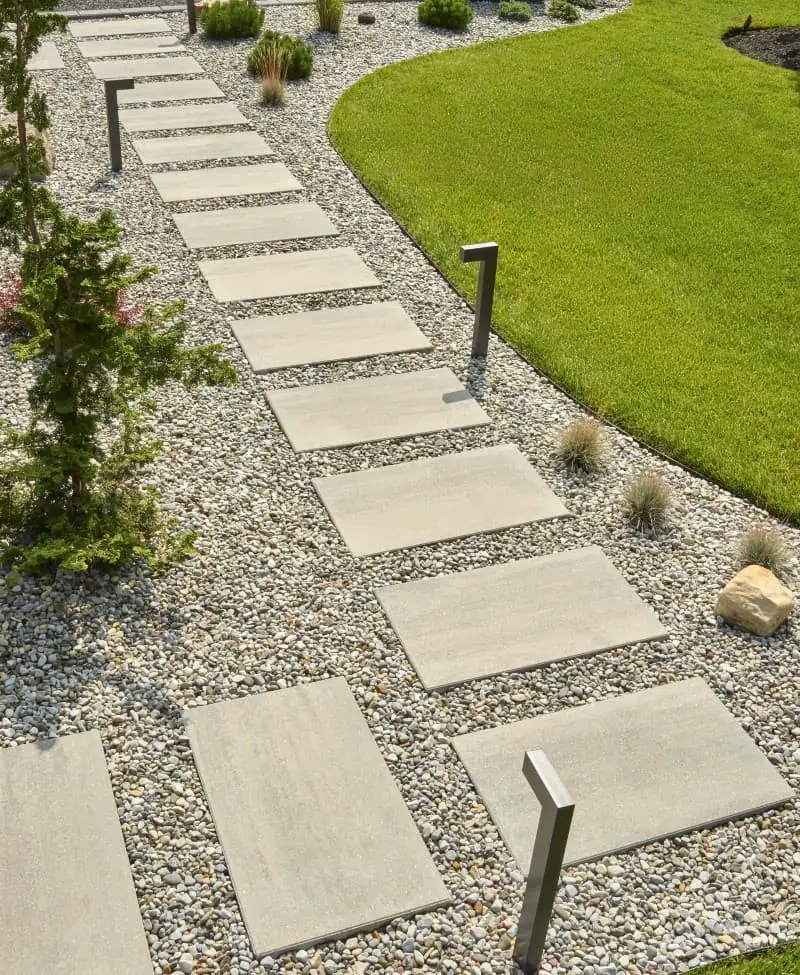
Concrete pavers are a type of paving material made from concrete that come in various shapes and sizes. While rectangular pavers are the most common, square and hexagonal options are also available. What’s more, these pavers can be found in an array of colors including red, blue, green, black, and gray. Their versatility makes them a popular choice for a range of applications such as driveways, patios, sidewalks, pool decks, and even decorative patterns in concrete.
The benefits of using concrete pavers are numerous – they’re durable, low maintenance, and straightforward to install. However, before you start installing, there are a few factors to consider: the type of subsoil beneath the surface, the local climate (high humidity or rainfall can be problematic), and the expected traffic levels. While they can withstand heavy use, more maintenance may be required in high-traffic areas.
Ferrock and Ashcrete Paver.
Transforming your home with ferrock and ashcrete pavers is an excellent way to merge eco-friendliness with stylish flair. By opting for these sustainable options, you’re not only doing your part for the environment but also reaping financial benefits in the long run.
Ferrock, crafted from recycled steel dust, and ashcrete, made from coal fly ash, are two materials that share a common goal – to reduce waste and minimize their ecological footprint.
Not only do these pavers boast an environmentally friendly profile, but they’ll also help you cut down on energy expenses over time.
But what truly sets ferrock and ashcrete apart is their versatility in terms of design. With a range of colors and styles to choose from, you can effortlessly find the perfect aesthetic fit for your home. Whether you’re aiming for timeless elegance or modern sophistication, these pavers will grant you the look you’ve always wanted.
Flagstone Pavers.
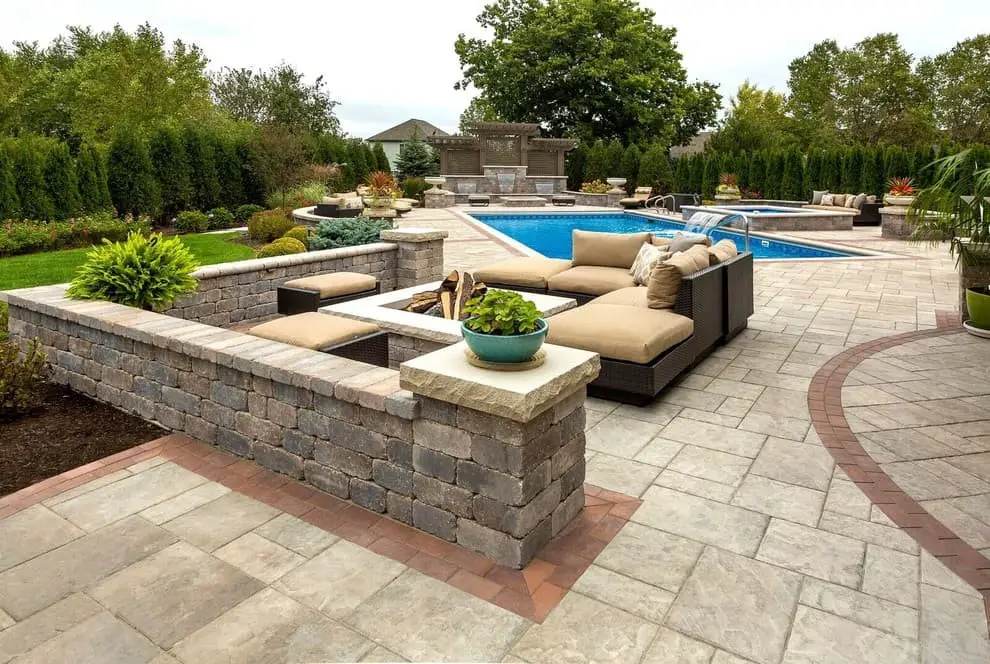
Flagstone, a sedimentary rock, is prized for its distinctive layered appearance. Its natural beauty and durability have made it a sought-after material for walkways, patios, and driveways. The variety of colors and sizes available means homeowners can create a one-of-a-kind look that complements their property. Flagstone pavers offer several benefits, but also come with some drawbacks, which are essential to consider when deciding whether they’re the right choice for your outdoor space.
The advantages of flagstone pavers include their remarkable durability, which enables them to withstand the test of time and require minimal maintenance. The range of colors and styles available ensures that homeowners can find a perfect match for their home’s aesthetic. Moreover, flagstone pavers are known to increase a property’s value. On the other hand, the significant upfront cost is often a drawback, as is the need for professional installation.
Furthermore, when wet, flagstone pavers can become slippery, posing a potential hazard.
Gravel Pavers.
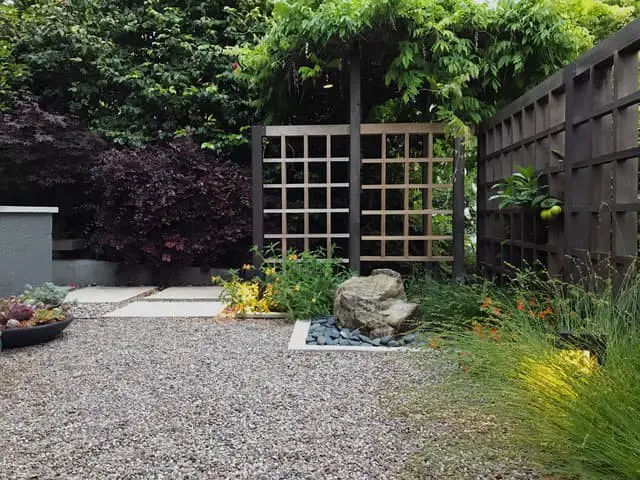
When it comes to paving, gravel is an excellent choice due to its affordability, durability, and ease of installation. With a wide range of options available, selecting the right gravel paver for your project is crucial. To make an informed decision, consider the following key factors: the type of gravel you desire, the size and shape of the pavers, the color palette, and the price point. While gravel pavers have their advantages, they also come with some drawbacks.
On the plus side, they offer a natural aesthetic appeal, are relatively low-maintenance, and can withstand wear and tear well. However, one potential drawback is the mess they can create – gravel can easily be tracked into your home, making it difficult to keep the pavers clean, especially for households with small children or pets. Another consideration is the regular maintenance required to keep gravel pavers looking their best.
You’ll need to regularly rake the gravel to prevent it from becoming dislodged and uneven.
Grasscrete Paver.
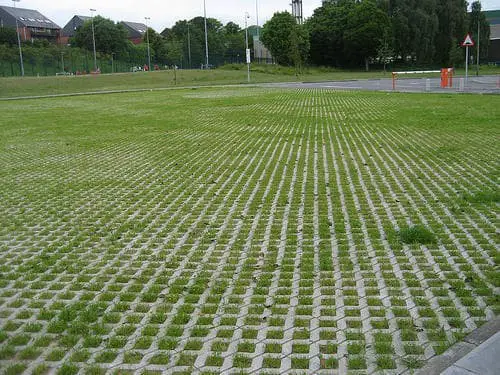
Grasscrete, a pioneering concrete paver solution, allows lush grass to thrive through its porous surface. This innovative material boasts numerous benefits, including its eco-friendly credentials and versatility in various applications. One of the most significant advantages of Grasscrete is its environmentally responsible composition, made from recycled materials, which ensures minimal environmental impact.
Moreover, its 100% permeable nature enables water to flow effortlessly through it, reducing runoff and preventing flooding. This attribute makes Grasscrete an excellent choice for high-traffic areas, such as driveways, patios, walkways, and even parking lots, where strength and durability are paramount.
Hempcrete Pavers.
Innovative building solutions often require a delicate balance between functionality and environmental sustainability. One such solution is hempcrete, a natural material crafted from the humble hemp plant. This eco-friendly alternative to conventional concrete offers a durable, strong, and non-toxic option for those seeking a greener approach.
Specifically, hempcrete pavers provide a sustainable paving solution that combines hemp shives, lime, and water to create a unique blend of strength and durability. With no toxic chemicals present, these pavers ensure a safe choice for both the environment and human health.
Interlocking Concrete Pavers.
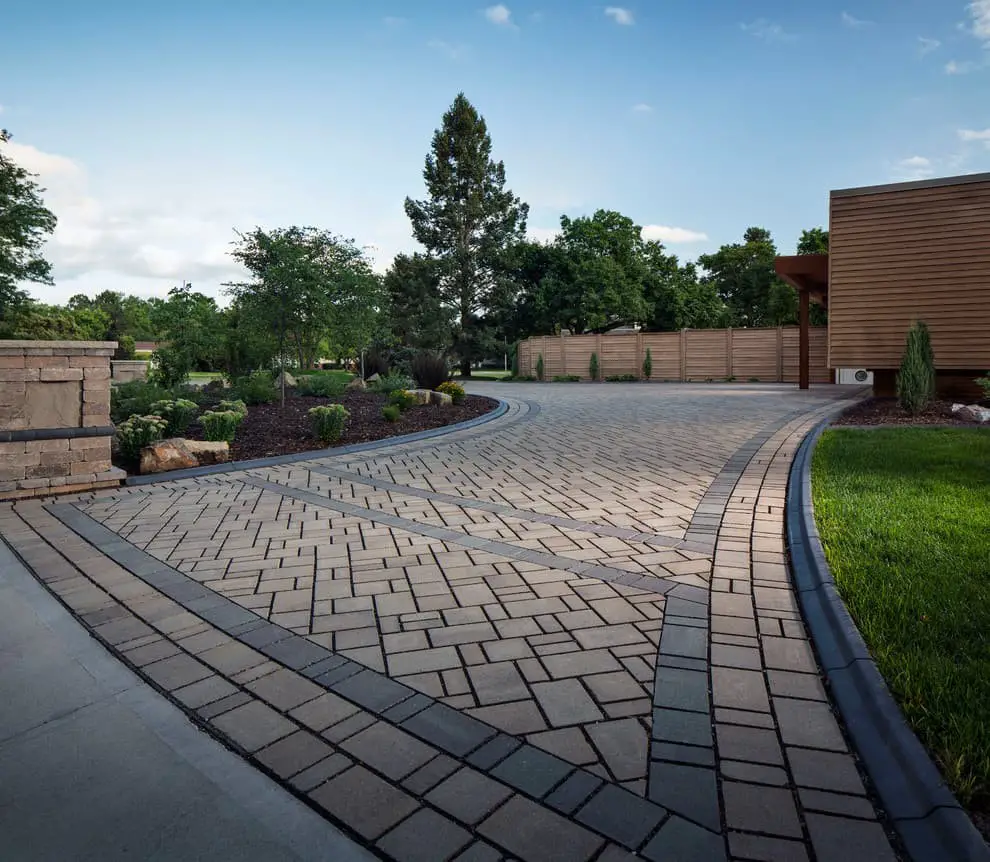
Interlocking concrete pavers boast a unique characteristic – individual units that fit together seamlessly without the need for mortar. This innovative design yields a strong, durable, yet surprisingly flexible pavement that can withstand minor settling and shifting. With its high-strength properties, interlocking concrete is an excellent choice for busy areas such as driveways, walkways, and patios. The benefits of interlocking concrete pavers extend far beyond their durability.
They are remarkably easy to install, require minimal upkeep, and come in a vast array of colors and styles to suit any aesthetic. Furthermore, these eco-friendly pavers permit rainwater to seep through the joints, replenishing groundwater supplies and supporting local ecosystems. While there is much to praise about interlocking concrete pavers, it’s essential to consider their limitations as well.
While they offer numerous advantages, they can be more costly than other types of pavers and pose a challenge when it comes to removal for repairs. Nevertheless, the strengths of interlocking concrete pavers far outweigh their weaknesses, making them an attractive option for those seeking a low-maintenance, eco-conscious, and long-lasting paving solution.
Marble Pavers.
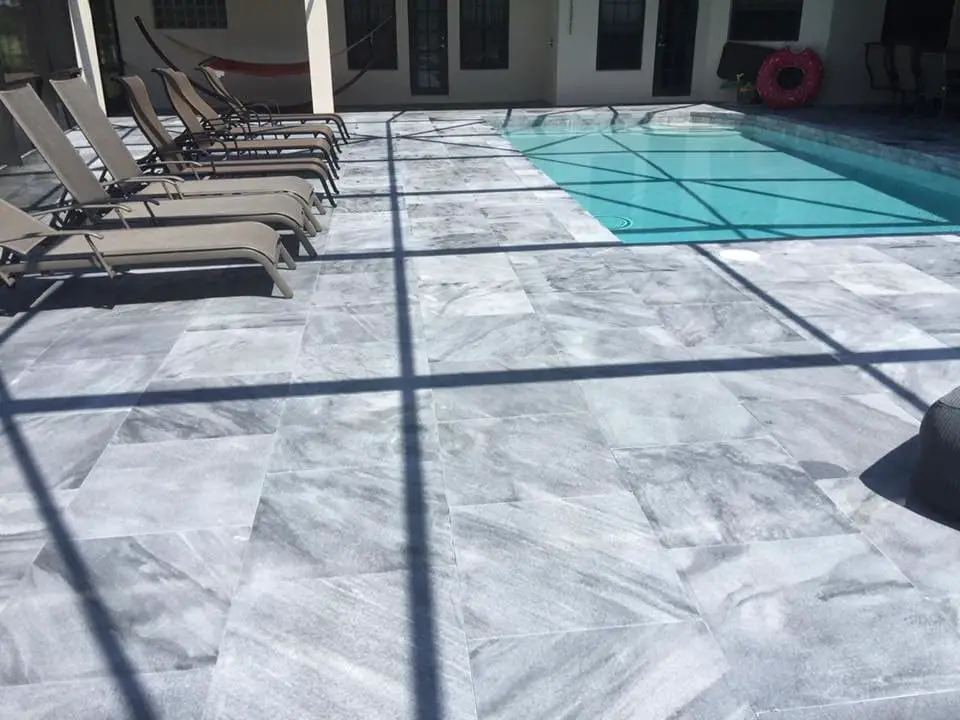
Marble paver has been a cornerstone of architectural design for centuries, and its enduring popularity is a testament to its exceptional qualities. This natural stone has been prized for its timeless beauty, durability, and ease of maintenance, making it a favored choice among homeowners and builders alike. Its longevity is unparalleled, as with proper care and upkeep, marble pavers can remain a stunning feature in any space for many years.
Furthermore, they are remarkably easy to clean and require minimal upkeep, ensuring that the aesthetic appeal of this natural stone remains intact for generations to come.
Mulch Pavers.
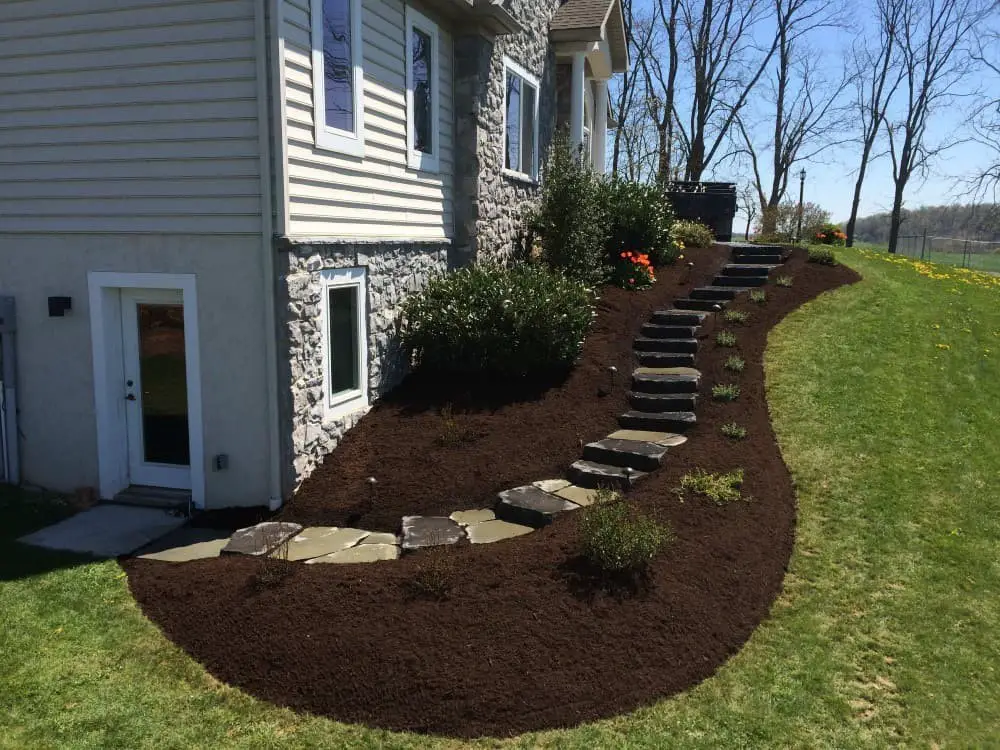
When it comes to enhancing the fertility or aesthetic appeal of soil, mulch plays a crucial role. This organic material is typically spread on top of the soil to promote healthy plant growth and add visual interest to outdoor spaces. Pavers, on the other hand, are concrete or stone blocks used to create hard surfaces for walkways, patios, and driveways. Mulch pavers, as their name suggests, are a unique type of paver specifically designed to work in harmony with mulch.
Characterized by a central hole surrounded by a lip, these pavers prevent the mulch from washing away or shifting, ensuring it remains neatly in place. By using mulch pavers, individuals can effortlessly add mulch to their landscape without manual application, making them an attractive option for walkways and patios alike. Furthermore, mulch pavers are available in a range of colors and styles, allowing homeowners to select a design that seamlessly integrates with their outdoor space.
Mycelium Pavers.
In the realm of construction materials, mycelium has emerged as a versatile and innovative option with far-reaching applications. One such application is in the creation of mycelium pavers, which boast a unique composition comprising fast-growing mushrooms. When compared to traditional concrete or brick pavers, these fungal-based alternatives offer several distinct advantages. For instance, they possess a lighter weight, making installation a more streamlined process.
Additionally, mycelium pavers exhibit superior drainage capabilities and are more resistant to frost heave, rendering them an attractive choice for projects prioritizing durability and sustainability.
Plastic Pavers.
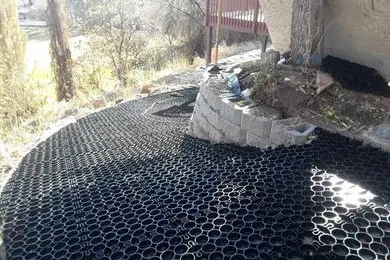
Plastic paving solutions offer a unique combination of strength, durability, and low maintenance requirements, making them a popular choice for both residential and commercial projects. The versatility of plastic pavers is one of their most attractive features, as they can be used in a wide range of applications. Installation and upkeep are also simplified with these versatile pavers. While plastic pavers have several advantages, there are some limitations to consider.
For instance, when wet, the surface can become slippery, presenting a potential hazard. Additionally, the visual appeal of plastic pavers may not meet the standards set by other materials, such as natural stone or brick. Nevertheless, their numerous benefits make them an attractive option for many projects.
Porcelain Pavers.
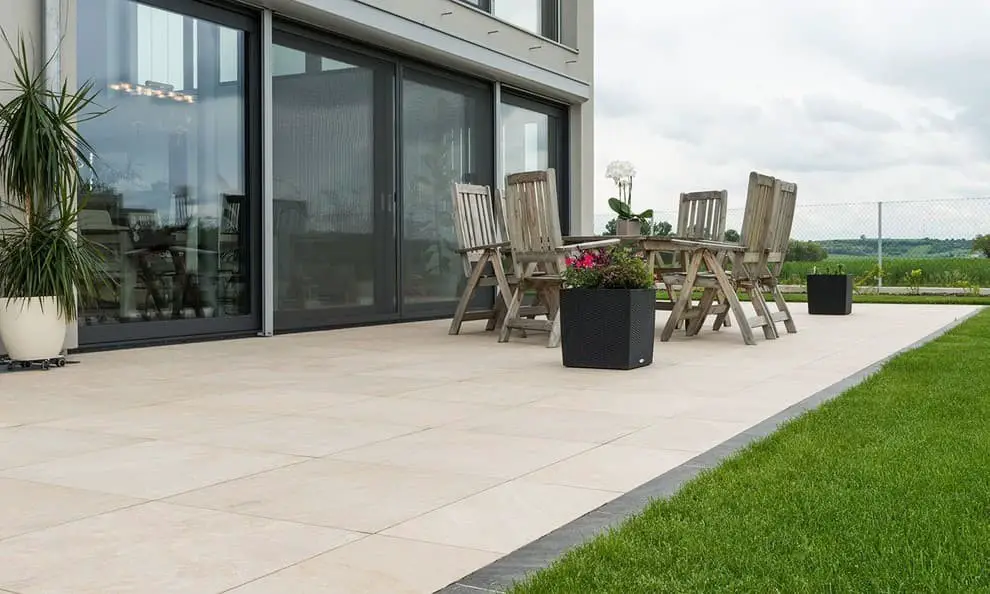
Porcelain, a type of ceramic material, stands out due to its exceptional strength, density, and low porosity. This unique combination makes it an excellent choice for outdoor flooring applications such as patios, walkways, and pool decks. Porcelain pavers come in a diverse range of colors, sizes, and shapes, allowing homeowners to seamlessly integrate them into their desired design. When considering porcelain pavers, it’s essential to weigh the pros and cons.
On one hand, they offer exceptional durability and ease of cleaning, making them well-suited for high-traffic areas. On the other hand, when wet, porcelain pavers can be slippery, and they may be prone to staining. As a result, homeowners must carefully consider these factors before making an informed purchasing decision.
Resin pavers.
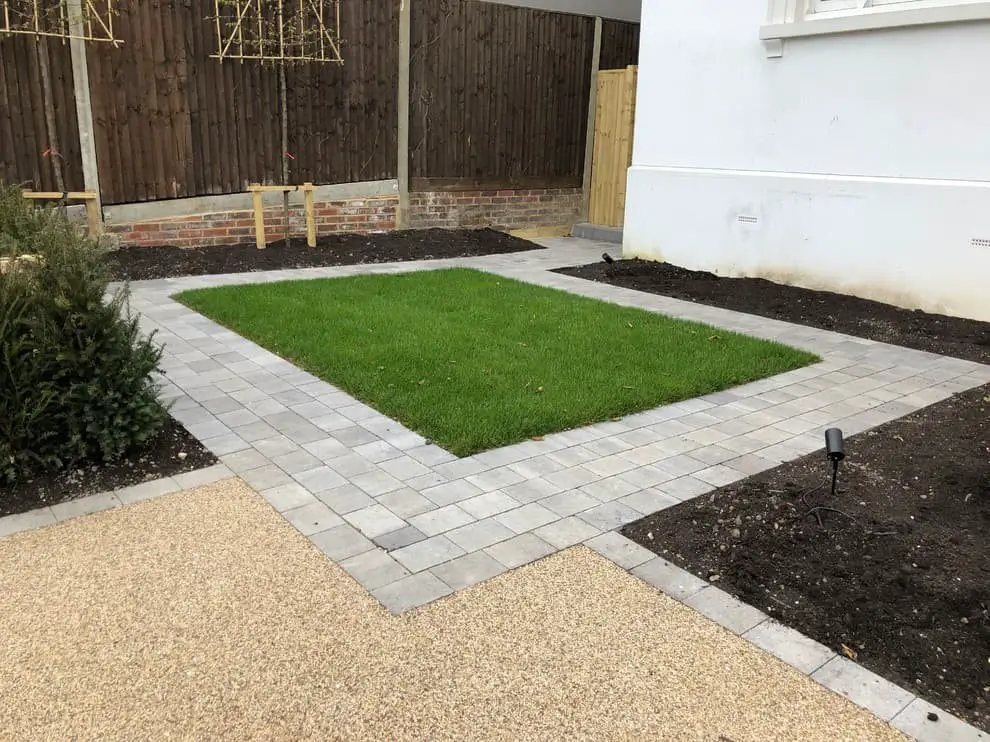
While resin pavers have gained popularity for their durability and ease of maintenance, there’s more to consider than just their benefits. In fact, when it comes to choosing the right paver material, understanding both the pros and cons is crucial. On one hand, resin pavers are a cost-effective and easy-to-install option that many homeowners appreciate. However, they also have some drawbacks that should be taken into account before making a decision.
One of the most significant disadvantages of resin pavers is their susceptibility to staining. If an accident occurs, removing the stain can prove challenging. Furthermore, while they’re not as durable as other options, resin pavers can still crack or chip if not installed correctly.
Rubber Pavers.
Rubber pavers are a remarkable example of the versatility of rubber, a material that can be used in various applications. One such application is outdoor paving, where rubber pavers excel due to their exceptional durability and slip-resistance. These features make them an ideal choice for areas where people are likely to walk or run, as they significantly reduce the risk of accidents.
The durability of rubber pavers also means they will withstand the test of time, lasting longer than other types of pavers. While there are some drawbacks to consider, including a potentially higher cost compared to other options and slightly more challenging installation process, the benefits of rubber pavers make them a worthwhile investment for many outdoor spaces.
Sand Pavers.
When it comes to paving materials, sand is often overlooked in favor of more traditional options like concrete or stone. However, sand has its own unique benefits that make it an attractive choice for many projects. For one, it’s incredibly durable and easy to maintain, making it a great option for areas that receive high traffic or experience extreme weather conditions.
Plus, sand pavers are generally less expensive than other materials, which can be a major plus for budget-conscious homeowners. When selecting sand pavers for your project, there are a few key considerations to keep in mind. First and foremost is the type of sand you’ll need – fine sand is often used for residential applications, while coarse sand is better suited for commercial or industrial projects.
You’ll also want to think about the size of the pavers themselves, which can range from small bricks to large slabs depending on your needs. Finally, you’ll want to consider the color of your sand pavers. With so many different options available, it’s worth taking some time to find the perfect shade for your project. Whether you’re looking for a bold statement piece or a more subtle accent, there’s sure to be a sand paver that fits your needs.
As with any material, there are pros and cons to using sand pavers in your project. On the plus side, they’re extremely affordable and easy to install – no special tools or equipment required! On the downside, sand pavers can be prone to damage from heavy traffic or bad weather, and may not be as durable as other materials like concrete or brick. Additionally, cleaning and maintaining sand pavers can be a bit of a challenge.
Ultimately, however, the benefits of using sand pavers often outweigh the drawbacks – especially for those on a budget.
Timber pavers.
For centuries, timber has been a trusted material in construction and landscaping, prized for its strength, durability, and aesthetic appeal. When it comes to outdoor spaces, timber pavers offer a unique way to add visual interest and texture to your garden or patio. One of the key benefits of timber pavers is their eco-friendly credentials. Made from recycled wood, they provide an excellent sustainable solution for those looking to reduce their environmental footprint.
However, it’s essential to consider the potential drawbacks: while timber pavers may be more expensive than other options, they also require more maintenance to keep them looking their best.
Travertine pavers.
Travertine, a sedimentary rock formed by calcium carbonate accumulation in marine or fresh water environments, is renowned for its durability and slip-resistance. Its light-colored appearance can range from cream to yellow, pink, and orange hues. As a popular choice for outdoor flooring, travertine pavers boast benefits that extend beyond their attractive appearance.
The stone’s natural coolness makes it an ideal option for pool decks and patio areas, providing a comfortable surface for occupants. When installing travertine pavers, sealing the stone is crucial to protect it from staining, weather damage, and maintenance woes. This treatment also enhances the pavers’ ease of cleaning and upkeep. With its durability, beauty, and low-maintenance requirements, travertine has been a timeless favorite for centuries.
Despite its popularity, there are some drawbacks to consider before committing to travertine pavers. On one hand, travertine offers many advantages, including its strength, natural beauty, and ease of maintenance. The stone can withstand heavy foot traffic and vehicles with ease, while its elegant appearance adds a touch of luxury to any outdoor space. On the other hand, travertine’s porosity means it can absorb stains and spills if not sealed correctly.
Additionally, its smooth surface can be slippery when wet, posing a safety concern. Furthermore, travertine pavers tend to be more expensive than other paving materials. Despite these drawbacks, travertine remains a highly sought-after choice for those seeking a natural, low-maintenance solution for their outdoor flooring needs.
Paver Features.
While many people associate pavers with driveways and walkways, these versatile materials have much more to offer. In reality, pavers can be used to craft stunning patios, pool decks, and even indoor flooring designs that rival traditional surfaces. One of the key benefits of pavers is their incredible versatility – they come in a vast array of shapes, sizes, colors, and textures, allowing homeowners to choose options that perfectly match their property’s style or create a one-of-a-kind look.
Not only do pavers offer visual appeal, but they’re also remarkably durable and low-maintenance. With the right care, pavers can remain a beautiful and functional feature of your home for decades to come.
Interlocking.
For many homeowners, interlocking pavers remain the top preference due to their simplicity and convenience. Without requiring any specialized installation tools like mortar or adhesive, they offer a DIY-friendly solution for creating a wide range of designs. With a diverse array of colors, shapes, and sizes available, you can easily craft the perfect look for your outdoor space.
FAQs
What are the cheapest type of pavers?
When it comes to determining the cost of pavers, several factors come into play. One key consideration is the type of paver itself, which can significantly impact the overall price. For instance, concrete pavers tend to be the most budget-friendly option, offering a range of colors and sizes at an affordable price point. Brick pavers are another viable choice, with some types being more cost-effective than stone pavers.
However, it’s not just the type that matters – the size and thickness of the paver also play a role in determining the final cost. To find the best value, look for pavers that strike a balance between quality and affordability. Additionally, the color of the paver can also influence its price, with darker hues typically commanding a higher premium than lighter shades.
Are patio pavers cheaper than concrete?
While concrete is often perceived as a budget-friendly choice, patio pavers can prove to be a more economical option in the long run. Unlike concrete, which will inevitably crack and require replacement sooner rather than later, pavers can be repaired with relative ease if damage occurs. This means that while the initial cost of pavers may be higher, their durability and repairability make them a more cost-effective choice overall.
Do pavers increase home value?
When it comes to determining whether installing pavers will boost the value of your home, there are several factors at play. The location of your property is one key consideration – if you live in an area where homes tend to be more valuable, for instance, pavers could potentially increase your property’s worth. On the other hand, if you’re in a region where homes typically have lower price tags, the impact may not be as significant.
Another important factor is the quality of the pavers themselves – high-quality options will likely last longer and look better than their lower-quality counterparts, which could in turn enhance your property’s value. Additionally, the overall condition of your property plays a role; if you’ve taken great care to maintain your home and yard, installing pavers may be the icing on the cake, adding further value to your property.
Conclusion
With a deeper understanding of the various types of pavers out there, you’re now well-equipped to make an informed decision about which one best suits your specific needs. Whether you’re looking to create a functional outdoor space or add some visual appeal to your property, knowing the characteristics and applications of each type of paver will help ensure that your project turns out exactly as envisioned.
Related Posts
When embarking on a new venture, selecting the right equipment for your farm business can be a daunting task. Similarly, understanding gratuity etiquette when hiring driveway sealers or other home services professionals is crucial to maintaining positive relationships. Aspiring landscape architects and designers may also find themselves pondering how to break into this creative field.
To further explore these topics, we’ve compiled guides on how to become a landscape architect, landscape designer, and garden photographer, highlighting the key steps and skills required for a flourishing career.

